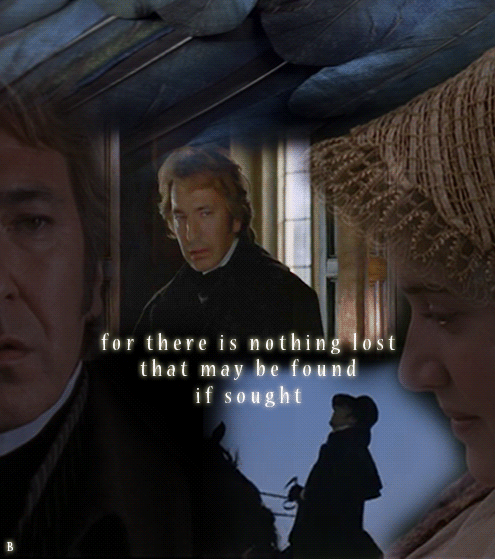The verses are of the poem Col. Brandon reads Marianne when she is recovering of her illness. I’ve heard it several times, but I don’t understand it completely. Shouldn’t be another negative particle after “may”, so that two negations make an affirmation? Written like this I understand that it is impossible to find something lost even if searching it, but I guess that the poet meant just the contrary.
Can you please help me, English-speaking readers?


It’s Spenser, so I’m tempted to say it doesn’t have to make sense (I’m not a huge fan), but your graphic misquotes the line from Canto II of the Faerie Queene. It’s actually “but may be found, if sought” (not “that”). Does that help?
Okay, I take that back. Austen may be misquoting Spenser. Aargh.
So in any case, assuming the graphic is an accurate quote of Spenser, yes, you’re correct that there should be another “not” (that may not be found if sought) but I think that would have broken the meter, and the meaning’s clear anyway. It’s rare in English to eliminate a negation, but it’s fairly common in, for instance, French (J’aime pas for Je n’aime pas).
I am finding it both ways online, but in texts of Spenser it seems to be “that may be found.” I’m wondering if Elizabethan English allowed the lack of negative. Certainly it sounds wrong to us moderns.
At any rate, still a very beautiful line for a lover to speak to his lady… especially if he happens to sound like Alan Rickman.
Thank you all for your help! So, the poem was Spenser’s who took a poetic license. 🙂 And I agree with you Servetus regarding the breaking of the meter, the rythm is lost adding another word.
Indeed, Linnet, while re-reading the novel it made me chuckle the fragment where Marianne mocks Edward because he doesn’t read poetry passionately enough and then she neglects the best poet-reader in English language! 😀